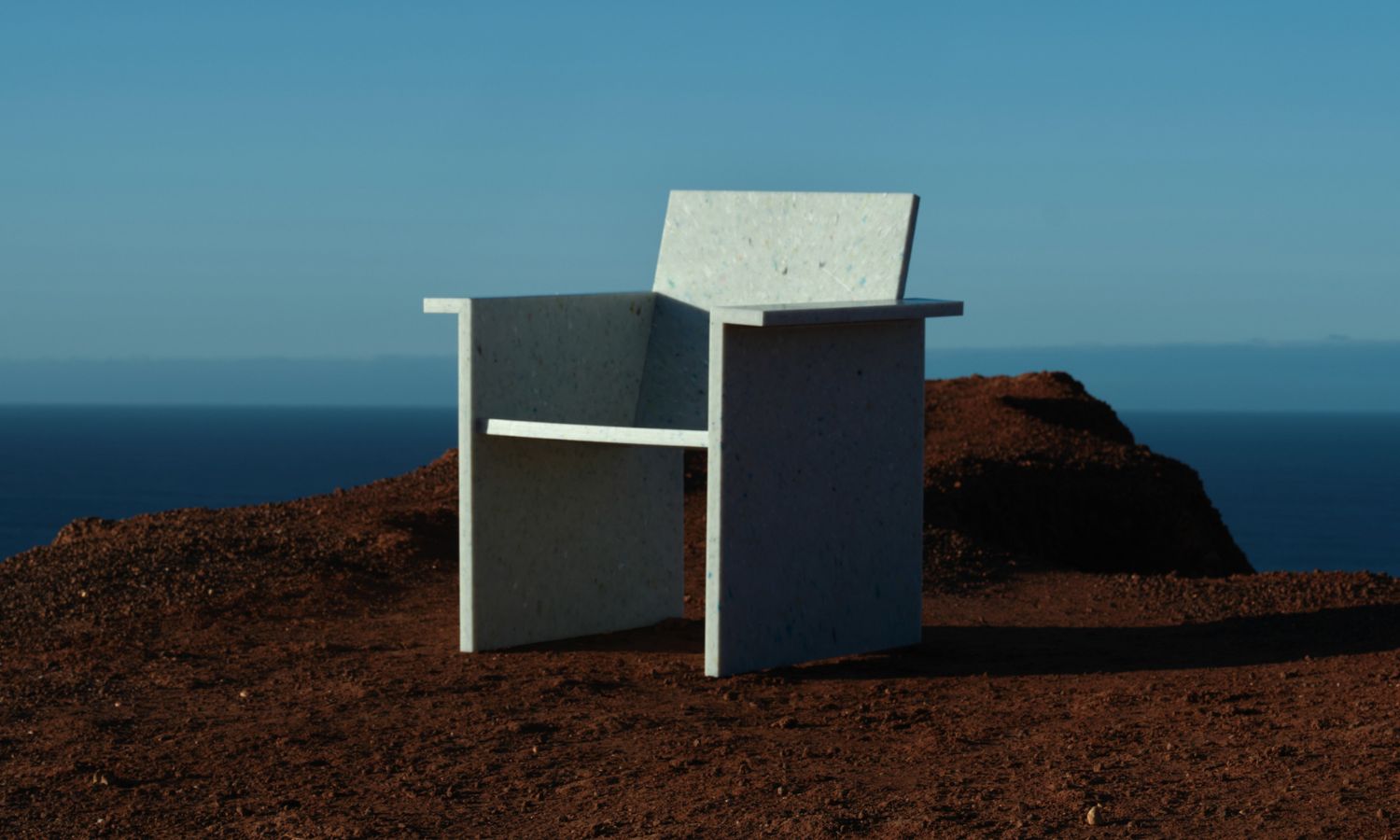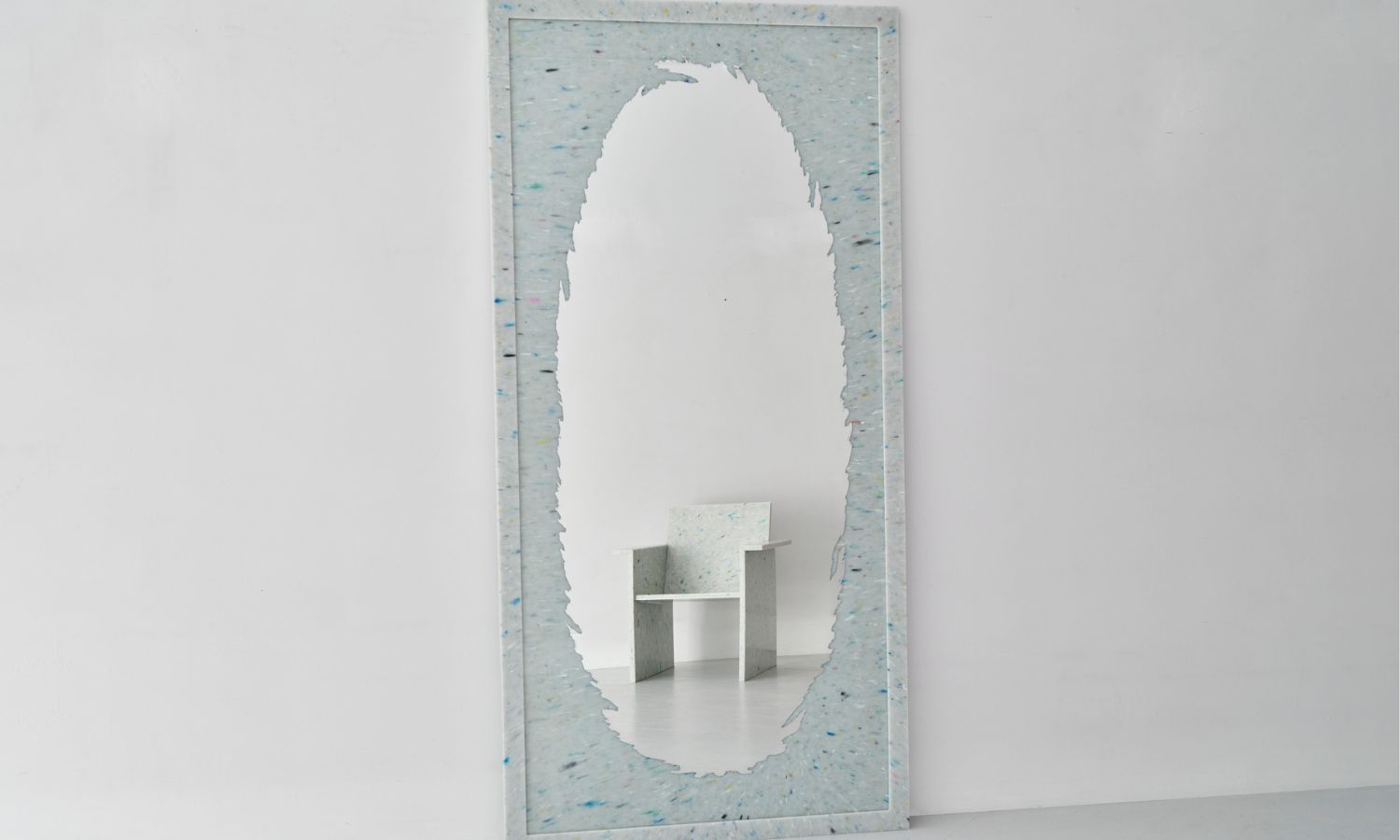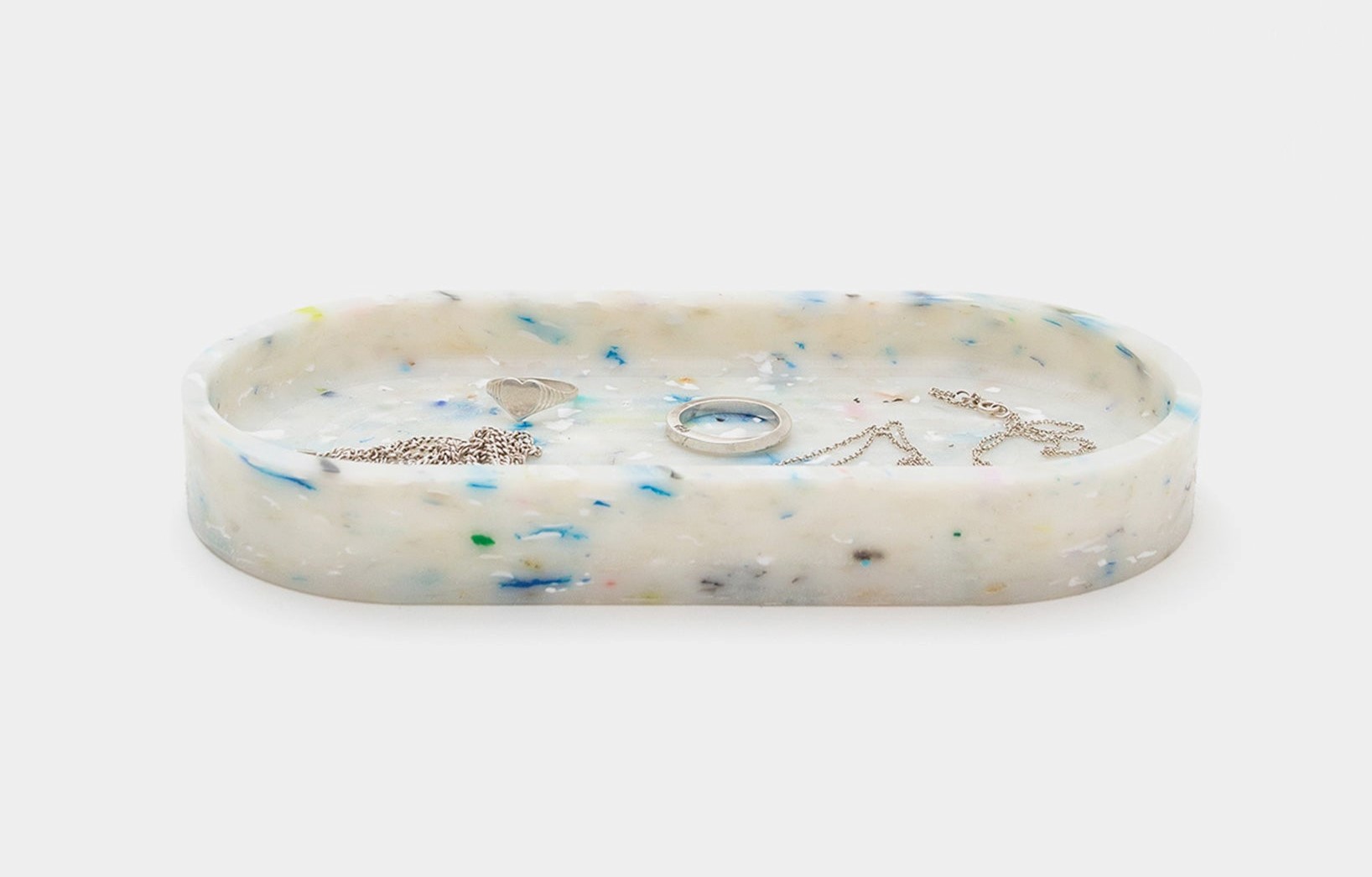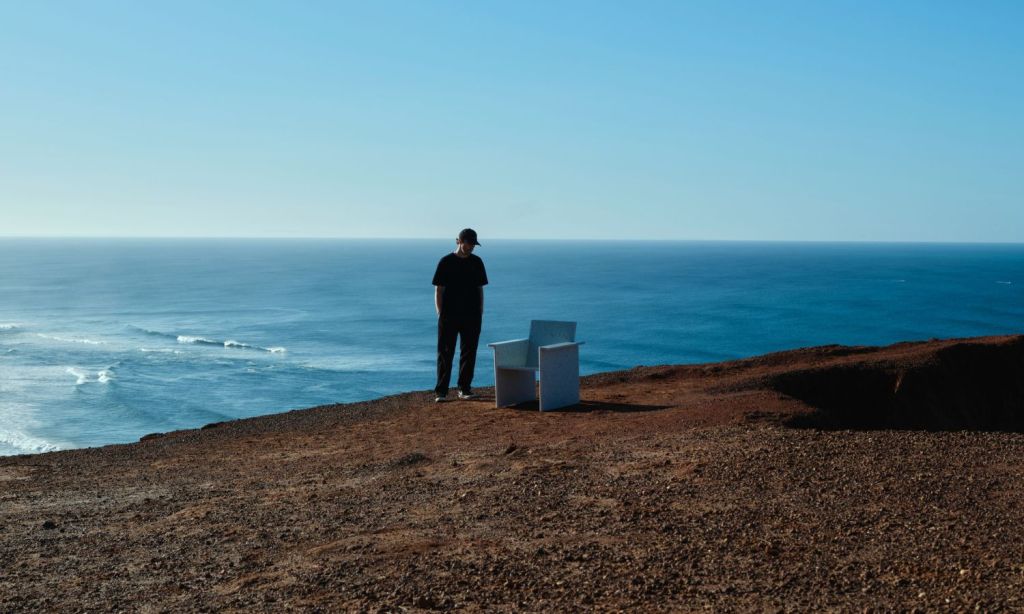Joshua Space says there wasn’t a specific moment that started him on his sustainability journey, but rather, a gradual increase in awareness of issues over time. Though, as a kid, the Collingwood-based artist always had an issue with people littering.
“It used to make me so frustrated, and still does,” Space says.
“I guess that underlying respect for our environment was the root of it. The more products and objects I designed and made, the more I became interested and aware of how things are manufactured, their impact and the essence of good design.”
Today, Space is on a mission to turn Victoria’s household recycling into innovative design pieces, like artwork, mirrors and planter pots, and, most recently, chairs.
Space’s work helps to raise awareness of one of Sustainability Victoria’s key messages: keep recycling loose and not in a bag, so the state government can use it to make more community-used items, like park benches, tables and planter boxes. When the recycling’s tied up in a bag, it can be used.

Once Space knew he wanted to work in the creative recycling field, he visited India to start his research of learning what can be made from recycled materials. He says the project consumed him, eventually evolving into a broader exploration of consumption and waste.
“I became more interested in understanding what happens in other industries and which materials can be recycled and repurposed for designing new objects and works,” he says. “Then, I started experimenting with the ideas I had been sketching up.”
In the example of Space’s Recycled Chairs, that means designing how the panels of the chair will join together, testing the ideal angle for the chair’s lean and experimenting with the limits of material manipulation. The recycled plastic is processed and then moulded, heated or pressed before being cut to size.

“The results can vary because the post-consumer plastic is sourced from council kerbside waste streams, which can sometimes be contaminated when people don’t recycle correctly,” says Space. “You can see some of this contamination in the Recycled Chair and Recycled Void Mirror if you look closely.”
While Space says improvements to recycling services in Victoria have allowed the state government and himself to make more products, thereby diverting more waste from landfill, there could be even less plastic waste if it was consumed less.
In the future, he hopes to see more objects and furniture made from organic materials like seaweed, algae, mushrooms and even food waste. Essentially, products made from materials that come from and can be returned to the earth with far less negative impact.

“Art plays a role in offering a lens to what is possible,” he says. “My work is a reflection of the world around us, and I hope it provides a different perspective to people on how to perceive things, specifically their waste in this case.”
“Even if it’s just small actions like correctly disposing of your waste in the appropriate bins and ensuring that recycling is loose, not bagged, so it can be properly process. This can make a big impact and help people like me use the materials to create something new.”
Related: 3 Australian Designers Weigh In — This Is the Homewares Trend They’re Seeing Everywhere
Related: These Fruit Print Homewares Are Sure to Pear Well With Any Space
Read more stories from The Latch and subscribe to our email newsletter.







